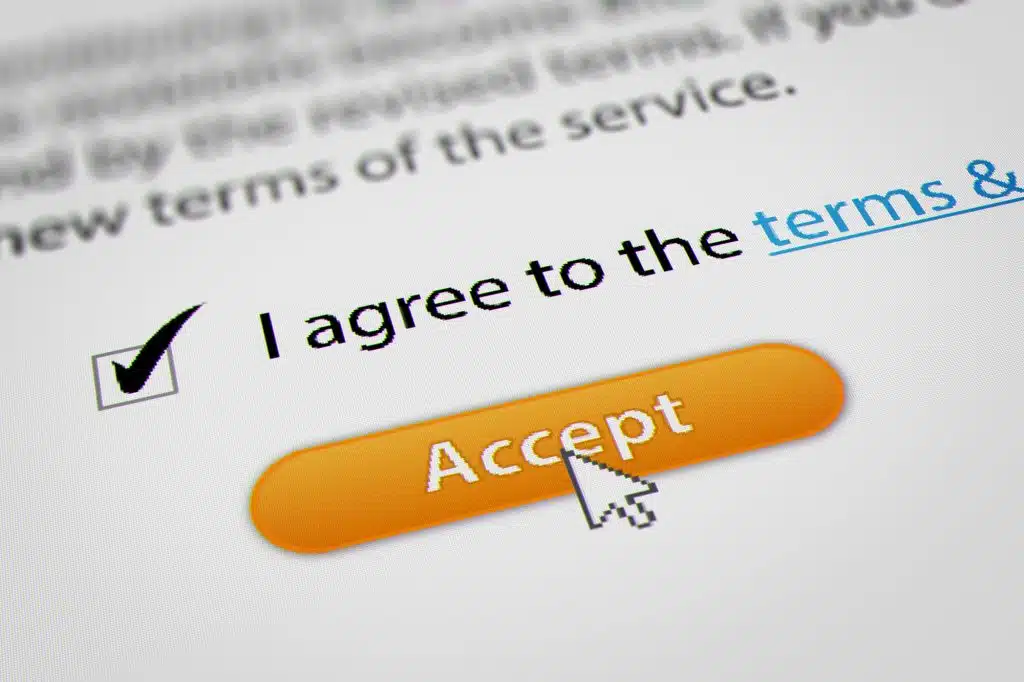Introduction
Having a great website is essential in today’s climate and can be crucial to the success of your business. However, no matter how fantastic your website is, if you do not use the proper disclaimers, you open yourself and your business up to several legal risks.
A website disclaimer sets clear legal boundaries protecting you from potential liability caused by the use of your website and allows you to manage the expectations of users / visitors to your website. It does not matter whether you are offering advice, selling products or services or simply sharing content, a website disclaimer is necessary to ensure transparency and help prevent misunderstandings between yourself and your users / visitors.
This article will explore what a website disclaimer is and why every website owner should have one on their website to ensure that both your interests and the interests of your users / visitors are safeguarded.

What is a website disclaimer?
A website disclaimer is a statement that you include or provide a link to on your website. Its purpose is to limit the site’s and ultimately, your legal liability, in relation to any content, information or advice it provides.
The purpose of a website disclaimer is to clarify to users / visitors of your website the scope of the information on the website and manage their expectations.
One of its largest benefits is that it serves to protect you and your business from any claims or liability that may arise in circumstances where users / visitors to your website interpret its content, information or materials as professional advice, promises or warranties.
What does a website disclaimer include?
Commonly, a website disclaimer will cover the following issues:
- Limitation of liability. This part of the disclaimer will clarify to users / visitors that you and your business are not responsible for any losses or damages that are incurred as a result of the user / visitor using the site or relying on its contents.
- Accuracy. This aspect will state that whilst you and your business endeavour to provide accurate and up to date information, you cannot guarantee that this will always be the case.
- No representation, warranties or professional advice. This is an incredibly important aspect of a website disclaimer. It disclaims that the content, information and materials on your website should not be considered professional advice and is not intended to be a representation or warranty that the user / visitor should rely on.
- External links. If your website contains links to other third-party websites or providers, it is important that your disclaimer clarifies that the links are provided for the benefit and convenience of the user / visitor but that you have no responsibility or liability in relation to the third-party provider.
- Own risk. This part of the website disclaimer highlights to users / visitors that they are using the website and its contents at their own risk.

Importance of a website disclaimer
A website disclaimer is incredibly important and should always be included on your website.
One of the most beneficial and important aspects of a website disclaimer is that it serves to manage legal risks and clarify the responsibilities of the website owner and its users.
Specifically, a disclaimer is valuable in limiting your liability in relation to your website and its contents and setting expectations for what the website should and should not be used for, such as that it is not a substitute for professional advice or that it is not a representation of you and your business. It is worth noting that a website disclaimer does not override or supersede your legal obligations, or any statutory entitlements users / visitors may have, for example, a website disclaimer will not protect you from any claims relating to misleading or deceptive conduct under Australian Consumer Law.
Additionally, where necessary, a website disclaimer can also address any third-party links that you may use to state that you are not responsible for their content.
All of the above greatly assist in not only protecting your business from legal risks but also allow you to build trust with users / visitors of your website with transparent disclaimers allowing users to understand who and what they are engaging with.
Conclusion
Whilst a website disclaimer cannot protect you from or eliminate all potential liabilities that may arise as a result of your business’ website, it acts as the first line of defence and attempts to mitigate any legal risks.
The information in this article is for general purposes only and you should obtain professional advice relevant to your specific circumstances.
Get in touch
If you or someone you know wants more information or needs help or advice in relation to website disclaimers, please contact us.
Related Resources
Contracts E-commerce
Why you should read online terms and conditions
Why you should read online terms and conditions The rapid pace at which technology is progressing means more of us are ‘transacting’ in a global environment. International online contracts are common place for businesses and consumers – whether we are purchasing fashion accessories through online retail outlets, subscribing to industry-specific...
Read moreContracts Intellectual Property
The Chat Ts&Cs of ChatGPT
We assume that you’ve seen more ChatGPT articles than you’d care to read so we won’t go into detail about what it does. Instead we will go straight into the nuts and bolts of the terms under which it is used. What are the Ts & Cs of ChatGPT? The...
Read more



